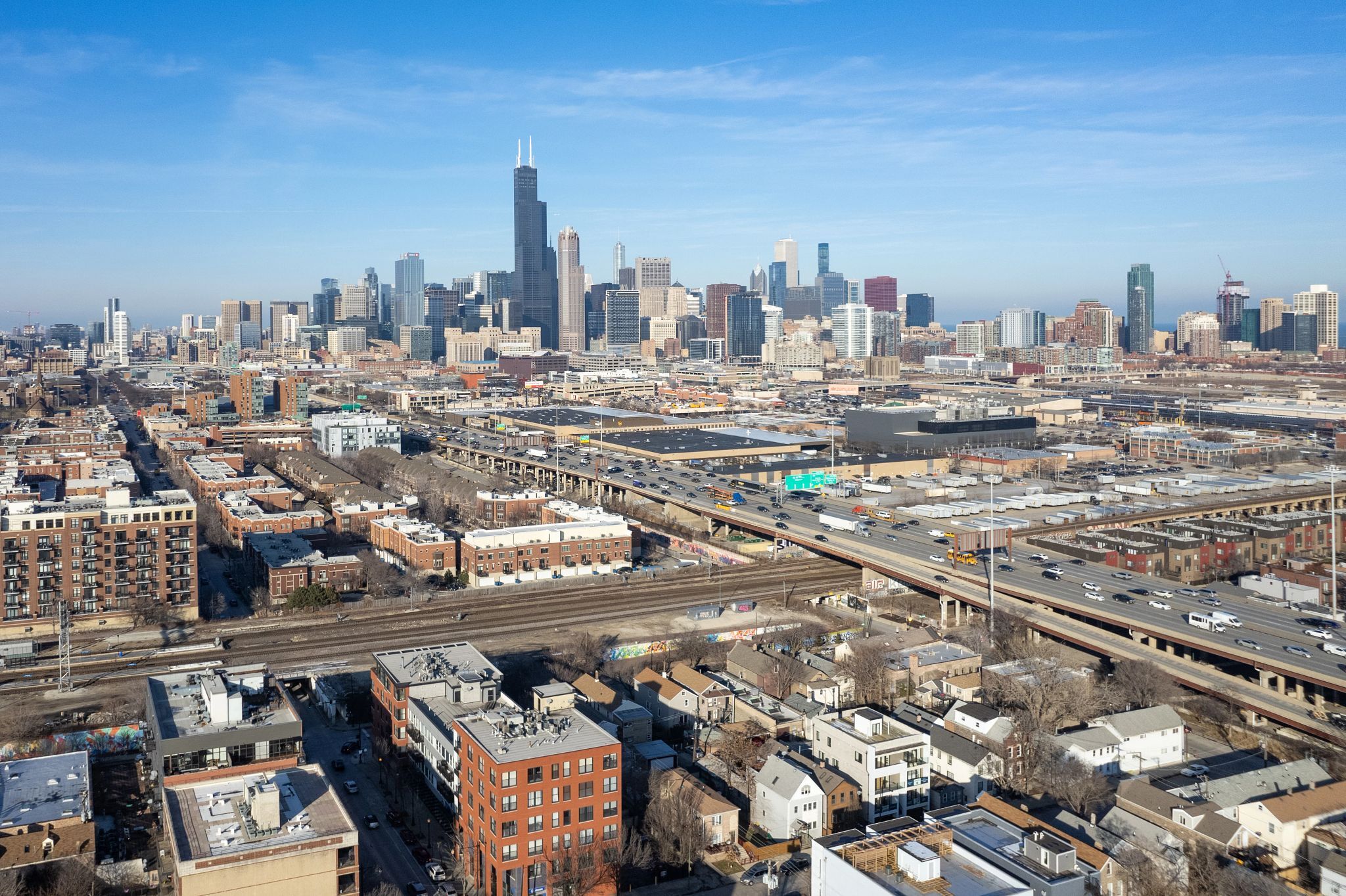A coalition of Chicago property owners and other real estate and business groups is suing to block a referendum vote on an initiative that would increase transfer taxes on sales of more than $1 million to address homelessness.
The BOMA/Chicago-led coalition filed a lawsuit Friday in Cook County circuit court. That is roughly two months after the Chicago City Council approved the measure that, if backed by voters on the March 19 ballot, would lead to significant increases in taxes on the sales of some homes and most commercial property sales.
Defendants are the Chicago Board of Election and its commissioners.
Real estate owners are seeking an injunction that would prohibit the commissioners from adding the referendum to the ballot, arguing that the bundled, three-part nature of the question violates the Illinois municipal code and state constitution.
“This referendum substitutes real public policy discussion with a cynical manipulation of voters,” Farzin Parang, BOMA/Chicago’s executive director, said in a statement. “It’s time to gather all stakeholders to develop a thoughtful, realistic plan of action that has a real impact on homelessness and improves our city.”
The complaint filed Friday is the latest chapter in what already promised to be a hard-fought battle between city aldermen backing the measure and other supporters who argue that the new transfer-tax structure is needed to combat homelessness with real estate owners and other opponents who argue that new taxes would further slow an already sluggish investment sales market.
In doing so, they argue, the so-called Bring Chicago Home initiative could have unintended consequences such as pushing up rents and slowing construction of new residential units.
Similar initiatives in other cities such as Los Angeles also have encountered legal challenges and other obstacles to achieving their intended goal of reducing homelessness.
A legal defeat would be a major setback for progressive Chicago Mayor Brandon Johnson, who since taking office last year has made issues such as Bring Chicago Home top priorities.
Since the City Council voted 32-17 in favor of creating the referendum, key questions — including how the newly raised funds actually would be used — have lingered as the election approaches.
If the measure eventually becomes law, property sales of more than $1 million would be taxed at a higher rate than they are now, with an additional bump to 3% — quadruple today’s rate for city transfer taxes — on amounts over $1.5 million.
According to the complaint, the question is set to be phrased as: “(1) shall the transfer tax rate be lowered from $3.75 to $3.00 for purchase value of less than $1M?; (2) shall the transfer tax rate be raised from $3.75 to $10.00 for purchase value between $1M and $1.5M?; and (3) shall the transfer tax rate be raised from $3.75 to $15.00 for purchase value above $1.5M?”
The real estate coalition’s complaint argues that the referendum’s structure as a three-pronged question will be confusing to voters, and it does not allow them to specify which of the three aspects of the question they support or oppose. The coalition describes it as an example of legislative log-rolling, or “bundling unpopular legislation with more palatable bills so that the well-received bills will carry the unpopular to passage.”
The complaint also alleges that a proposed decrease in transfer taxes on sales below $1 million is illegal because Illinois statutes only allow for a referendum to create a new tax or increase an existing one.
In a statement to CoStar News, Chicago Board of Election Commissioners spokesman Max Bever said the agency is not the one that should be named in the lawsuit.
“The Chicago Board of Election Commissioners is an independent agency appointed by the Circuit Court of Cook County — it is not a department of the City of Chicago,” the statement said. “The Board has nothing to do with initiating this referendum question and it has no stake in the outcome of the referendum or litigation.
“The Board follows Illinois Election Code and places a question on the ballot as submitted by Chicago City Council ordinance and as certified by the City Clerk. The Chicago Board of Election Commissioners would not be a proper defendant in this case. The City of Chicago and the City Council would be proper defendants.”
Revived Effort
The Bring Chicago Home initiative stalled under previous Mayor Lori Lightfoot, but Johnson last summer signaled plans to revive the effort when his transition team released a 233-page report that included a recommendation to pass a so-called mansion tax.
If it makes it on the ballot, the referendum would need to be approved by a majority of voters. It then would require a separate City Council vote to become law.
Proponents of the increased tax have said it could generate $100 million annually for homelessness services, while foes have pointed out that no specific details have emerged on how the funds would be used.
BOMA, a trade association for 240 downtown buildings, argues that its members pay an outsize portion of property taxes already, subsidizing homeowners. Major landlords argue that higher costs of selling properties will slow an already sluggish market amid interest rate hikes and other economic challenges.
It has been a year and a half since the last office building sale of more than $50 million downtown. In one recent deal, a 12-story office building at 300 W. Adams St. sold for $4 million, down from $51 million the last time it sold in 2012.
“The transfer tax increase will have real world consequence,” Michael Glasser, president of the Neighborhood Building Owners Alliance, said in the plaintiffs’ statement. “It is already challenging to finance investment in housing, and even more challenging to finance affordable housing. This measure increases the cost of that investment: it does not make housing more affordable, more available, or better in any way. It is hard to see how this will help the homeless.”



